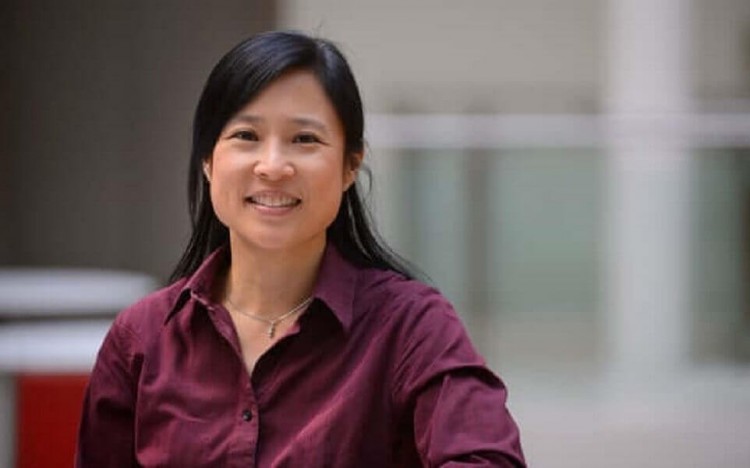Now the director of the Executive Global Master’s in Management (EGMiM) program at the London School of Economics (LSE), she is driven by the excitement of seeing those same lightbulbs go off in the minds of her students.
Connson left the US for England and LSE in 2008—her English husband took some persuading, she jokes, to return to the temperamental English weather. She began working for the school’s Department of Management as an assistant professor of management, just as the department was in its nascent stages.
“I think it’s really exciting to join when something is just starting out, because you can help shape it,” she says.
A viable alternative to an MBA degree
Connson left a regional training and development role at Boston Consulting Group (BCG) to take up her role at LSE. She had been left frustrated by corporate training, and a feeling of inertia delivering the same programs again and again.
She remembers colleagues who were sponsored by the company to earn an MBA and for a time she considered doing the same. But when she reflected on her motivations, she hit a stumbling block.
“I thought hang on a minute, why do I want to get an MBA? I want to because everyone else is doing it.”
After returning from their MBAs, many of her colleagues admitted that while they developed their network, they failed to learn much more in the classroom than they had on the job.
“Don’t make the mistake I made in thinking the MBA is the answer to everything,” Connson asserts. “It’s the answer for some people, but others want something deeper.”
The Executive Global Master’s in Management is exactly that. And the something deeper that Connson talks about is a shift from the case-led educational model of the traditional MBA towards a more comprehensive approach to the theory and concepts of management and the development of critical thinking skills.
That’s what differentiates the EGMiM from an MBA. The theories Connson teaches are psychological theories—even if they were developed long in the past, she explains, the human psyche hasn’t changed that much over the years.
“It’s taking this body of knowledge we’ve had for such a long time and bringing it out of the ivory tower, actually letting people use it in their day to day.”
So, it’s theory over cases, and an emphasis on understanding and interpreting good research. But, will that really be useful in the workplace?
“It’s foundational to being a good manager and a leader,” Connson says. “We get thrown a lot of information these days and to have people who can sort the true from the fake, the robust from the shaky research, that, I think, is really valuable.”
Beyond an MBA degree
Connson cites the way she teaches organizational justice theory as an example of how the Executive Global Master’s in Management goes beyond a traditional MBA.
On the surface, she says, it’s the theory that everyone wants to be treated fairly by their organization. What’s interesting and just below the surface, Connson explains, are the three dimensions to fairness that she teaches her students.
First, there’s distributive fairness. This is what and how much you get from your organization—do you get your bonus, or if you’re laid off, how much compensation are you given?
Then, there’s procedural fairness, or how the decision was made. Executive decision? Were employees consulted? And finally, the interactional. How was the message delivered? Did the CEO announce the layoffs or was it done by email through a lower manager? When interacting with the person who’s delivering the message to you are they speaking with respect? Do you feel you can trust them?
“Once you break it down into three elements, research shows that even if the outcome is bad, if the treatment is good it mitigates a lot of the negative reactions,” Connson explains.
Getting into a theory like that is not something you’d typically be taught in business school, she adds, and it allows students to really see how they can apply certain research to their own career.
Students on the EGMiM can also produce an academic dissertation, another distinguishing feature over a traditional MBA. Around 60-to-65% of students opt for that track, and the rest go for the Capstone business project, which also entails original student research.
The careers of EGMiM grads
When the Executive Global Master’s in Management was first launched, Connson says they expected it to be a degree that boosted people into leadership positions in their own organizations.
But over the years they’ve had a huge mix of career outcomes. Students do climb the ladder in the own organizations, but they also use the EGMiM to change industry, and to go out and start their own companies.
The EGMiM sets them up to apply their learning to real business scenarios. Connson believes that’s a lifelong trait that individuals should hold on to.
“For me, it’s this connection between all this knowledge out there in academia, and we need someone to bring it out of academia and have people on the ground doing these jobs use it, because it’s so useful,” she says.
“Someone once told me you can’t teach theory to executives, that they don’t like theory, and I’m like, no, that’s completely wrong. If you present it in the right way, they understand why it’s valuable.”






